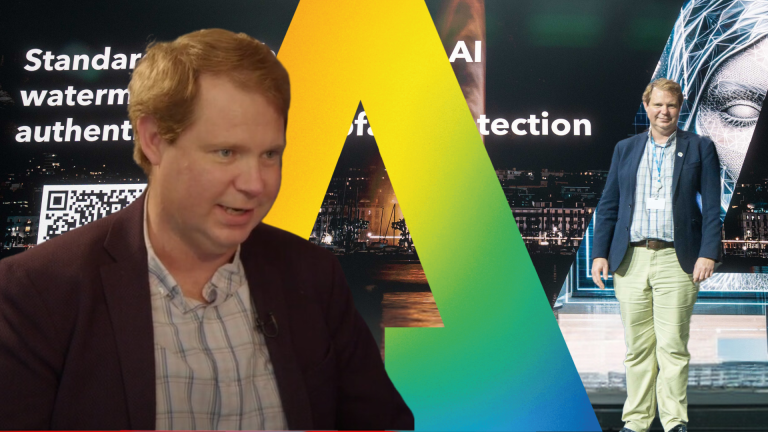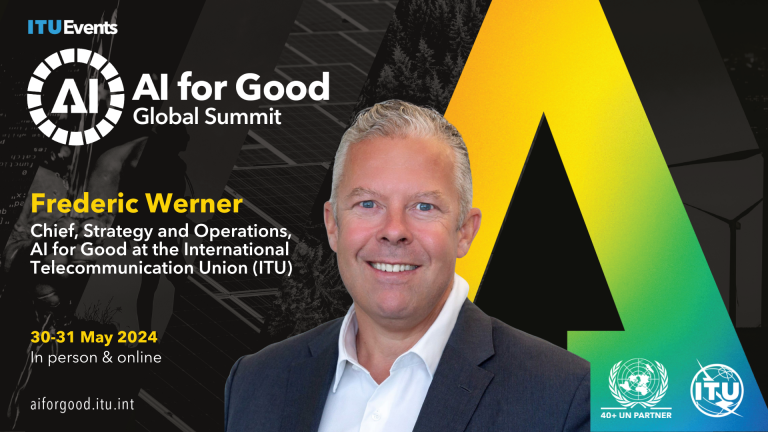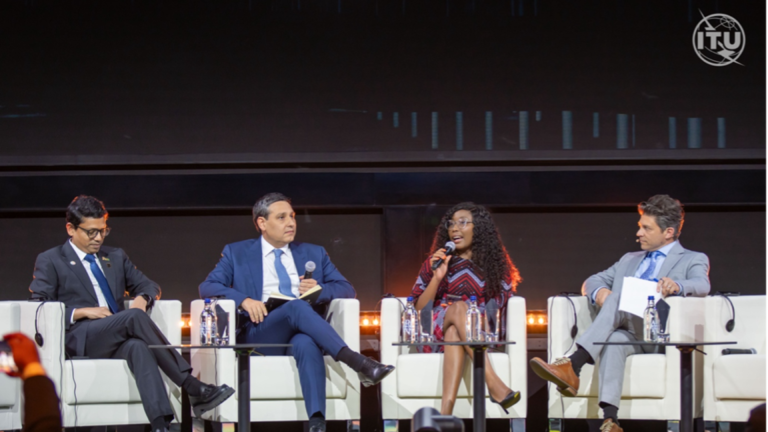Transforming Waste Management: How Re-Learn’s NANDO is Leading the AI Revolution at the 2024 AI for Good Global Summit
At the AI for Good Global Summit 2024, Fabrizio Custorella, CFO and Co-founder of ReLearn, introduced NANDO, an innovative AI-driven waste management solution. ReLearn, a pioneering Italian start-up and one of the finalists in the AI for Good Innovation Factory 2024 live pitch event, is focused on tackling the urgent challenge of waste management through sophisticated technology.
Contemporary waste management encounters a multitude of hurdles. The guidelines surrounding waste collection are often unclear and inconsistent, differing significantly across various cities. This lack of standardization results in subpar recycling quality, as individuals find it difficult to keep up with the frequently changing regulations. Moreover, the new EU Sustainability Regulation (CSRD), set to be implemented in 2024, requires companies to evaluate their environmental impact, including waste production, as a measure to mitigate greenwashing. Unfortunately, there remains a substantial gap in the available tools for precise waste measurement.
Custorella points out that NANDO is the first AI-enabled waste management tool. “NANDO utilizes image recognition technology to gather data about the waste generated by companies and assess segregation quality,” he explains.
This system is designed for simplicity. It seamlessly integrates with existing bins, transforming them into smart waste containers without requiring any replacements. NANDO features several vital components. Sensors are affixed to current bins to measure waste output and monitor how well items are sorted. Displays positioned near these bins empower users to scan items and receive guidance on the appropriate disposal location based on local sorting regulations. Additionally, NANDO’s AI enhances user awareness about waste management issues, guiding individuals to make informed disposal choices.
Custorella elaborates, “You can scan the item in your hand, and NANDO will inform you which bin is correct based on the sorting regulations for that area.”
NANDO has been successfully rolled out in seven countries, engaging around 40,000 individuals daily in locations like banks, universities, shopping centers, and airports, yielding impressive results.
“Typically, upon installation of NANDO in our client facilities, segregation quality starts around 30%. However, through our monitoring and educational initiatives, we elevate this quality to approximately 75%,” Custorella notes.
During the AI for Good Global Summit, NANDO’s sensors and displays tracked waste production, segregation effectiveness, and CO2 emissions. Reports generated from this analysis showed that 109 kg of waste was monitored, with an excellent 66% of that waste being recycled properly. The Global People Score, which measures waste sorting efficacy by participants, reached 65%.
Custorella emphasizes the critical role of NANDO in supporting corporate compliance and sustainability efforts. “To comply with sustainability reporting, it is essential to track and report how much waste is generated and the quality of segregation,” he stresses.
NANDO aids organizations in adhering to international regulations while showcasing proactive environmental responsibility. ReLearn’s collaboration with AI for Good extends to monitoring waste at events, demonstrating NANDO’s adaptable capabilities. At the AI for Good Summit, NANDO extended its expertise by analyzing waste production and segregation quality, compiling a comprehensive report on the event’s waste management efficacy.
Custorella shares a lesson learned from the event: “We did encounter some challenges with compostable cups, but through staff interactions, we are actively educating attendees about the appropriate disposal methods.”
ReLearn envisions a future where data meets individuals to foster a waste-free environment. Their multifaceted approach addresses various dimensions of waste management. A significant challenge identified in their reports is the ambiguous guidelines for waste collection, which do not effectively minimize contamination. The inconsistency of collection regulations from one city to the next exacerbates this dilemma, complicating adherence for the public.
Furthermore, the company highlights the absence of effective measurement tools for waste management, posing a significant challenge for organizations striving to comply with the upcoming EU Sustainability Regulation. This regulation compels entities to quantify their environmental impact to avoid greenwashing, with waste measurement being particularly difficult. NANDO fills this void by delivering a thorough waste monitoring solution.
NANDO is a plug-and-play system that converts existing bins into smart bins outfitted with sensors to accurately gauge waste production and segregation quality. This streamlined solution necessitates no new bins, making it both cost-efficient and easy to implement. The sensors on the bins register waste output, while user-friendly displays encourage community engagement through real-time feedback on appropriate waste disposal practices.
The NANDO.EYE feature employs AI technology to assist users in making proper disposal decisions by accurately identifying each item before it is discarded and directing them to the right bin. This capability is crucial for enhancing recycling quality and minimizing contamination. According to the company, NANDO.SENSOR harnesses AI to monitor waste production, recognizing over 72 categories with an impressive average accuracy of 92%.
The insights collected by NANDO are presented on a dashboard, generating professional reports in alignment with the GRI 306 standard. These reports provide detailed metrics on waste weight, bin capacity utilization, recycling quality, and CO2 emissions. This data is vital for organizations seeking sustainability certifications and ensuring regulatory compliance.
Additionally, NANDO introduces a gamification aspect to boost community involvement. The Circular Challenge encourages competing between various floors or locations within an organization to improve waste sorting, ultimately increasing recycling rates. This strategy proves successful in promoting corporate values and engaging employees in sustainable practices.
The positive impact of NANDO is considerable. By enhancing recycling rates and waste segregation quality, organizations can decrease their waste disposal expenses by as much as 20%. Moreover, the system lowers waste management costs by 40% through filling level alerts. Improved recycling quality may result in up to a 60% increase in recycling rates within the first year of use. The level of user engagement is also noteworthy, with over 3,000 daily interactions being recorded.
NANDO’s technology finds applicability across various sectors, including textiles, manufacturing, retail, healthcare, and large venues like airports and shopping malls. This adaptability makes it an invaluable asset for diverse organizations looking to enhance their waste management strategies and fulfill sustainability objectives.
ReLearn’s commitment aligns with the rising focus on environmental sustainability and adherence to regulations.
Custorella underscores the significance of taking proactive measures, stating, “With our solution, you can demonstrate your commitment to planet-friendly actions.”
The AI for Good Global Summit served as an ideal platform for ReLearn to highlight NANDO’s features and its impact potential. Custorella revealed plans for expanding their monitoring capabilities to encompass industrial and event waste. The Global Summit also acted as a case study, with NANDO continuously tracking the waste segregation quality and the total waste produced throughout the event.
Custorella noted, “We are discovering challenges with some compostable cups, but our team is actively training participants on proper disposal methods.”
ReLearn’s NANDO signifies a remarkable step forward in waste management technology. By leveraging AI, it tackles the crucial challenges of waste sorting and recycling, ensuring compliance with evolving regulations while promoting environmental consciousness. As organizations around the globe seek sustainable solutions, NANDO proves to be an essential tool in the movement towards a zero-waste future.
The International Telecommunication Union (ITU) proudly announced the successful implementation of NANDO at its Geneva headquarters, reinforcing its commitment to sustainable waste management practices. With NANDO, the ITU can accurately monitor and enhance its waste segregation quality, ensuring alignment with sustainability regulations and contributing to a cleaner, greener future.






